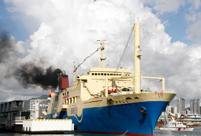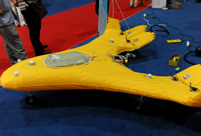 Maritime Silk Road Luxuries of the Han Dynasty
Maritime Silk Road Luxuries of the Han Dynasty
 Ceremony in honor of Confucius held in Sichuan
Ceremony in honor of Confucius held in Sichuan
 Hollywood blockbusters heats up fashion show in NW China
Hollywood blockbusters heats up fashion show in NW China
 Ciao! Chinese beauties!
Ciao! Chinese beauties!
 Naughty polar bear waves to photographer in Wapusk, Canada
Naughty polar bear waves to photographer in Wapusk, Canada
 An eye feast: BFA freshmen registration
An eye feast: BFA freshmen registration
 Top 10 most lavish weddings
Top 10 most lavish weddings
 Most amazing chi-pao beauties
Most amazing chi-pao beauties
 Observe the earth from space
Observe the earth from space
 Chinese lingerie brand arrives in Las Vegas
Chinese lingerie brand arrives in Las Vegas
Libyan militias recently took control of Tripoli, the capital of Libya, while Libya’s government has lost control over most of its state offices. The Middle East is unstable. The conflicts in Iraq and Syria have lasted for years; the Bashar al-Assad government is still fighting against anti-government activists; political unrest in Egypt has still not been resolved.
There are a variety of reasons for the conflicts in the Middle East. The US plays a key role there, and ten years ago launched a program designed to "transform" the region. As part of its strategy, and in keeping with the values it espouses, the US has been an advocate of democracy in the Middle East, and has joined with its western allies to topple first Saddam Hussein's regime in Iraq, and Muammar Gaddafi’s regime in Libya. The US approach is to stir up internal conflicts and then meddle in them under the pretext of its so-called 'responsibility for protection', as it did in Iraq and Libya.
The US President is visiting European countries, and attending a NATO summit which is focused on how to deal with the Ukraine crisis. The US is promoting the “Orange Revolution” in Ukraine as a move designed to contain Russia. It encouraged Ukraine’s “street democracy” faction to fight with other fractions, leading to the crisis. Now the US is again joining with the EU and NATO in an effort to resolve the crisis. It is obvious that the US is behind these disputes.
This is also evident in its dealings with the South China Sea and East China Sea Disputes. The US claims that it is maintaining neutrality in terms of the Diaoyu Islands Dispute and hopes that the dispute will be solved in a peaceful way. But at the same time it declares that the “US-Japan Security Pact” would cover the Diaoyu Islands. The US motive is to gain strategic advantages. But the results to date have fallen short of its expectations. The US policy in the Middle East has been ineffective, and its strategy of “rebalancing the Asia-Pacific” is being subjected to criticism. US actions are a cause for alarm.
The article is edited and translated from《美國“縱火”容易“滅火”難(望海樓)》, source: People's Daily Overseas Edition, author: Hua Yiswen
 Top 10 world's highest-paid models 2014
Top 10 world's highest-paid models 2014 "Twin flowers" bloom in the air
"Twin flowers" bloom in the air The 4th China-Eurasia Expo opens in Urumqi
The 4th China-Eurasia Expo opens in Urumqi Tall girls shine at model competition
Tall girls shine at model competition Vanguard dancing heats up 2014 Beijing Carnival
Vanguard dancing heats up 2014 Beijing Carnival Girl who cannot gain weight: She is 1, 2.9 kilograms
Girl who cannot gain weight: She is 1, 2.9 kilograms Experiencing maiden voyage between Sanya and Xisha
Experiencing maiden voyage between Sanya and Xisha Chinese inflatable aircraft meets public for the first time
Chinese inflatable aircraft meets public for the first time People enjoy delicacies in Tianjin undersea tunnel
People enjoy delicacies in Tianjin undersea tunnel Artistic gymnastics performance
Artistic gymnastics performance Moon of Mid-autumn Festival
Moon of Mid-autumn Festival Peace Mission 2014 joint military drill
Peace Mission 2014 joint military drill I want to be on stage at the Spring Festival Gala
I want to be on stage at the Spring Festival Gala Sand painting world
Sand painting world COMAC jumbo jet and its global rivals
COMAC jumbo jet and its global rivalsDay|Week|Month